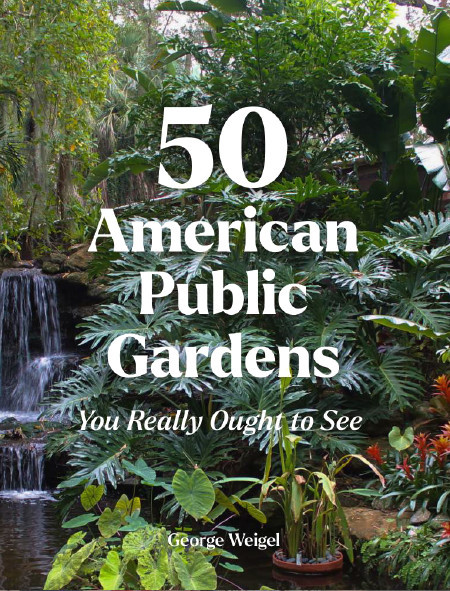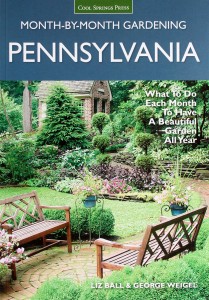Gardening for the Greater Good
March 29th, 2022
Some of my favorite times on this planet are when it’s just me and my plants in the yard on a warm, sunny day.

Does it get any better than this?
Words such as “peaceful,” “fulfilling,” “refreshing,” “rewarding,” and “joy” come to mind to describe these days, which also offer the physical benefit of exercise in the fresh air.
But as self-satisfying as gardening can be, it’s also an activity that leads to multiple benefits when done in multitudes.
“Gardening for the greater good” is the term that the Pennsylvania Horticultural Society (the group that runs the Philadelphia Flower Show) has been using lately to describe its big-picture efforts to foster programs that benefit our ecosystems and communities.
PHS’s consulting horticulturist and avid gardener Nicole Juday Rhoads recently came up with four principles that resonated with me on how gardening helps both us and others.
I thought I’d share her list…
1.) Celebrate gardening. “A garden is an expression of your own personality, your growing conditions, and your interests. Let your creativity run wild, and you will be sure to inspire others along the way.
“After all, there is no ‘right way’ a garden should look. Plant what you love – foliage, flowers, or food. Almost any space can be gardened – from a rooftop, to a windowsill, to a container. Think outside of the (window) box, indoors or out.
“Pursue knowledge and information. Gardening is an endlessly fascinating activity.”
2.) Choose your plants with intention. “Plants are the ingredients of healthy, beautiful gardens that support environmental best practices and local businesses.
“Use the power of the purse to buy local and support independent nurseries and growers. Ask your garden center to carry plants and seeds that have been organically raised. Choose plants that support wildlife, especially pollinators. Select plants that are not dependent on chemicals to look their best. And remove invasive plants in your garden.”
3.) See your garden as part of the ecosystem. “Your garden and what you do in it are part of a larger natural system. Garden in recognition of the environment all around you.
“Expand your gardening space, and increase its environmental benefit by reducing your lawn, as well as pavement and other impervious surfaces.

We’re not the only ones who benefit from the plants in our gardens.
“Use all-organic fertilizers, soil amendments, and other treatments for any problems in your garden. Compost yard waste and food scraps, enriching your soil while decreasing material going to landfills.
“Make your garden a habitat by incorporating wildlife-friendly elements like water features and safe places for wildlife to feed, rest, and reproduce. Mitigate storm-water runoff by installing a rain garden or rain barrels. Look for manual or electric alternatives to gas-powered machines such as lawn mowers and leaf-blowers.”
4.) Embrace a sharing mindset. “Share your passion and enthusiasm, your harvest, and your time.
“Encourage and mentor beginning gardeners, and lend your expertise to those who are ‘plant-curious.’
“Add a vegetable plot and donate the extra produce. Propagate plants to share with your fellow gardeners. Volunteer to help maintain a garden at a school, hospital, faith-based organization, or anywhere it will benefit others.
“Find others who share your gardening interests and learn from one another, whether at a community garden, a plant society, or a garden club.”







